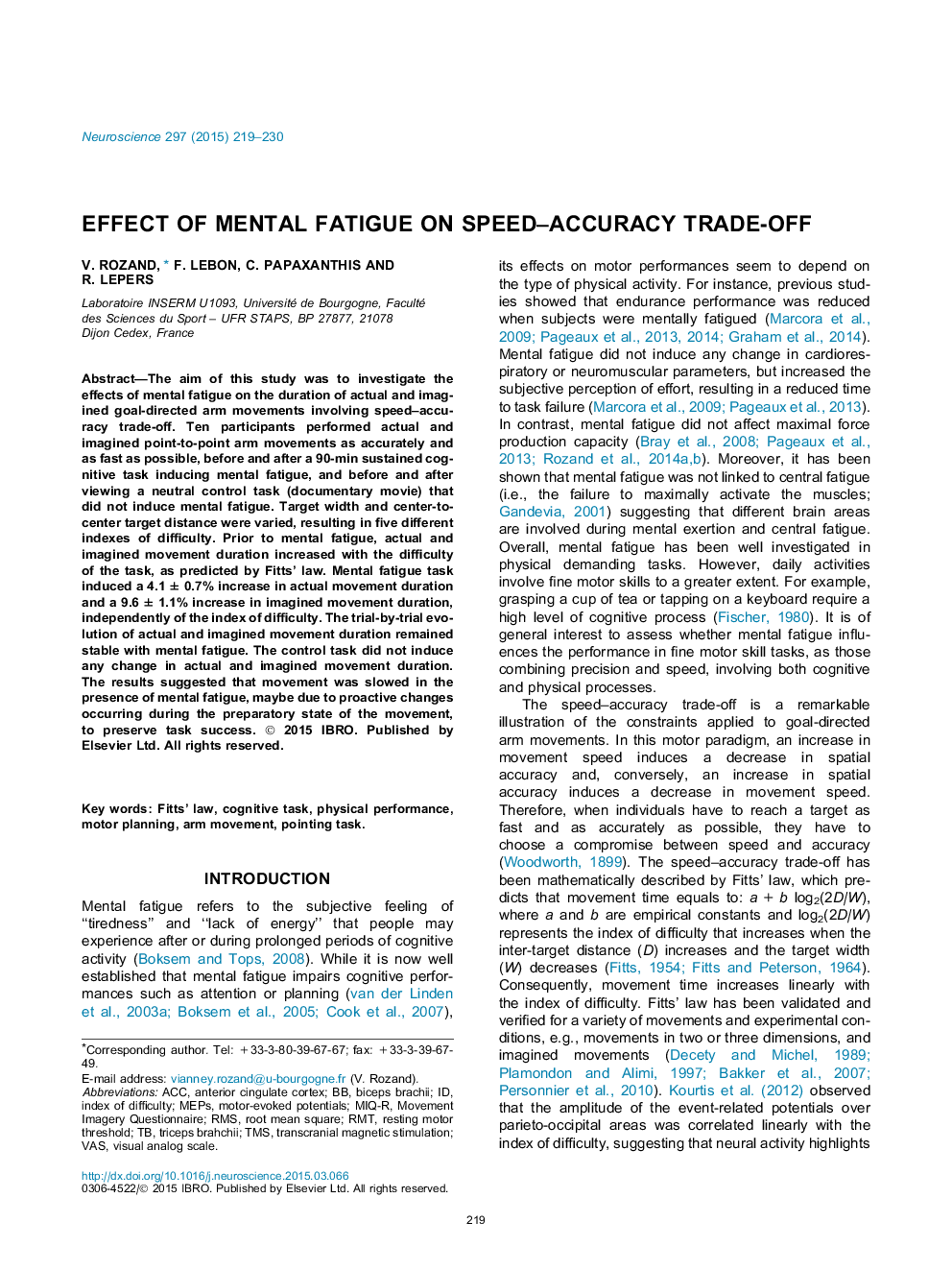| کد مقاله | کد نشریه | سال انتشار | مقاله انگلیسی | نسخه تمام متن |
|---|---|---|---|---|
| 6272306 | 1614779 | 2015 | 12 صفحه PDF | دانلود رایگان |
- Actual and imagined movement duration increased with the index of difficulty, as predicted by Fitts' law.
- Mental fatigue increased actual and imagined movement duration independently of the index of difficulty.
- Increase in movement duration was greater for imagined movements than for actual movements.
- The increase in movement duration may be due to proactive changes occurring during the preparatory state of the movement.
The aim of this study was to investigate the effects of mental fatigue on the duration of actual and imagined goal-directed arm movements involving speed-accuracy trade-off. Ten participants performed actual and imagined point-to-point arm movements as accurately and as fast as possible, before and after a 90-min sustained cognitive task inducing mental fatigue, and before and after viewing a neutral control task (documentary movie) that did not induce mental fatigue. Target width and center-to-center target distance were varied, resulting in five different indexes of difficulty. Prior to mental fatigue, actual and imagined movement duration increased with the difficulty of the task, as predicted by Fitts' law. Mental fatigue task induced a 4.1 ± 0.7% increase in actual movement duration and a 9.6 ± 1.1% increase in imagined movement duration, independently of the index of difficulty. The trial-by-trial evolution of actual and imagined movement duration remained stable with mental fatigue. The control task did not induce any change in actual and imagined movement duration. The results suggested that movement was slowed in the presence of mental fatigue, maybe due to proactive changes occurring during the preparatory state of the movement, to preserve task success.
Journal: Neuroscience - Volume 297, 25 June 2015, Pages 219-230
